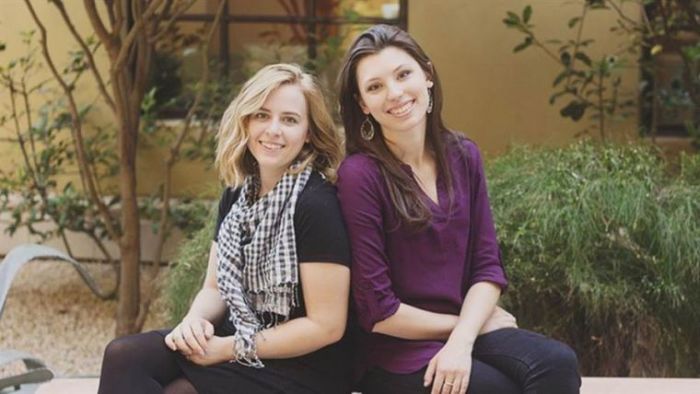Christian artists can’t be forced to make same-sex wedding invitations, Ariz. Supreme Court rules

A pair of Christian artists cannot be forced by a city ordinance to make wedding invitations for same-sex marriages, the Arizona Supreme Court ruled Monday.
In Brush & Nib v. City of Phoenix, Arizona’s highest court ruled that Joanna Duka and Breanna Koski, owners of Brush & Nib Studio, cannot be compelled by a local antidiscrimination ordinance to provide their services to same-sex weddings.
Writing for the majority, Justice Andrew Gould concluded that the city of Phoenix “cannot apply its Human Relations Ordinance” to force Brush & Nib to “create custom wedding invitations celebrating same-sex wedding ceremonies in violation of their sincerely held religious beliefs.”
“Duka, Koski, and Brush & Nib … have the right to refuse to express such messages under article 2, section 6 of the Arizona Constitution, as well as Arizona’s Free Exercise of Religion Act,” wrote Gould.
“Duka and Koski’s beliefs about same-sex marriage may seem old-fashioned, or even offensive to some. But the guarantees of free speech and freedom of religion are not only for those who are deemed sufficiently enlightened, advanced, or progressive. They are for everyone.”
However, the Arizona high court’s ruling was limited to just the “creation of custom wedding invitations,” with the ruling not allowing for “a blanket exemption from the Ordinance for all of Plaintiffs’ business operations.”
“Likewise, we do not, on jurisprudential grounds, reach the issue of whether Plaintiffs’ creation of other wedding products may be exempt from the Ordinance,” continued Gould.
Gould was joined by Justices Clint Bolick, John Lopez, and John Pelander. Vice Chief Justice Ann Scott Timmer and Justices Scott Bales and Christopher Staring each wrote dissenting opinions.
“Our constitutions and laws do not entitle a business to discriminate among customers based on its owners’ disapproval of certain groups, even if that disapproval is based on sincerely held religious beliefs,” wrote Justice Bales.
“In holding otherwise, the majority implausibly characterizes a commercially prepared wedding invitation as ‘pure speech’ on the part of the business selling the product and discounts the compelling public interest in preventing discrimination against disfavored customers by businesses and other public accommodations.”
In 2013, Phoenix added a new ordinance titled "Discrimination in public accommodations," which banned discrimination "in places of public accommodation against any person because of race, color, religion, sex, national origin, marital status, sexual orientation, gender identity or expression, or disability."
Also called City Code Section § 18.4(B), the ordinance had a religious exemption, but it did not include businesses. A violation of the law could result in up to six months in prison.
In May 2016, Duka and Koski filed a lawsuit against the city of Phoenix over the ordinance. That September, Arizona Superior Court Judge Karen A. Mullins ruled against their request to block enforcement of the law. In October 2017, Judge Mullins again ruled against Duka and Koski.
In June of 2018, a judge panel of the Arizona Court of Appeals unanimously ruled against them, concluding that they “failed to prove that Section 18-4(B) substantially burdens their religious beliefs by requiring that they provide equal goods and services to same-sex couples.”
“Appellants are not penalized for expressing their belief that their religion only recognizes the marriage of opposite-sex couples,” claimed the panel opinion.
“Nor are appellants penalized for refusing to create wedding-related merchandise as long as they equally refuse similar services to opposite-sex couples.”
Represented by the Alliance Defending Freedom, the artists then appealed to the Arizona Supreme Court in July of last year.
“Artists shouldn't be forced to create artwork contrary to their core convictions, and certainly not under threat of criminal fines and jail time,” stated ADF Senior Counsel Jonathan Scruggs at the time.
“Breanna and Joanna are happy to design custom art for all people; they simply object to being forced to pour their heart, soul, imagination, and talent into creating messages that violate their conscience.”




























